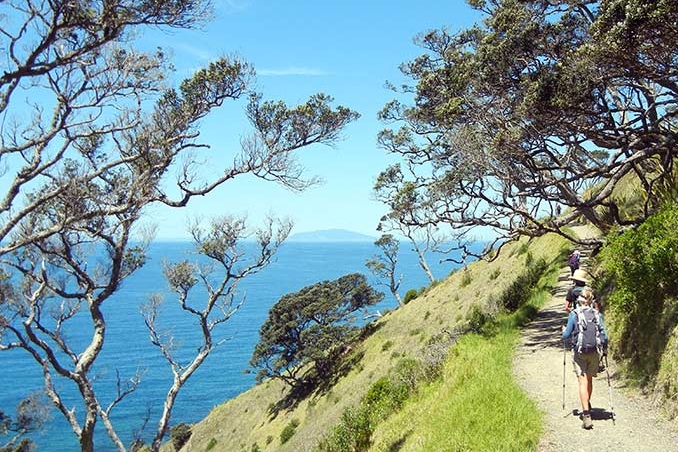
Update: This story now includes a correction about who the CITIC royalty dispute is with. It is not the WA Government, rather it is with Minerology.
Here's our summary of key events overnight that affect New Zealand, with news updates for your long weekend.
Wall Street ended strongly at the close of trading on Thursday, up more than +1% on all indexes.
The re-emergence of sub-prime lending and its appeal to yield-chasing investors is getting some coverage even if the levels are relatively low at present. But they are growing fast.
And inflation is rising in the US, according to the Fed's preferred measure. Prices rose +1.8% in February as annual inflation edged closer to their 2% target, a sign of strengthening American inflation pressures that will keep markets accepting that more rate rises will come this year.
Libor rigging lawsuits are still being settled. HSBC has agreed to pay US$100 mln to settle an antitrust lawsuit by over-the-counter investors, including the city of Baltimore and Yale University, who claimed they were harmed when they bought securities tied to rigged Libor.
In China, systemic financial risks mainly lie at banks, which accounts for more than 80% of the country’s total. But a new official report says financial risks at some Chinese banks are high and have continued to rise, even though the likelihood of a systemic crisis is declining. Risks at large state-owned banks, and at securities and insurance companies, have declined steadily, but those at smaller lenders such as Beijing Bank, Ping An Bank, China Merchants Bank, and Shanghai Pudong Development Bank, remain high and are increasing, the report says.
The latest data shows that the use of the Chinese yuan in international trade transactions is actually falling. In the year to December 2017 only 1.66% of transactions used the Chinese currency. By February that has fallen to 1.56% according to SWIFT data.
China also faces rising risk in its offshore investments. Giant state-owned investment conglomerate CITIC has had to write-down a massive NZ$1.3 bln in its Sino Iron project in Western Australia and says closing it and walking away is still an option due to a royalty dispute with the WA Government a Clive Palmer-backed company, Mineralogy
And China is becoming an expert in building prefabicated housing at scale. Underpinning the industry is a massive commitment to that method of residential construction by the People Liberation Army.
Does too much coffee give you the jitters? If not, this might - roasting coffee beans produces acrylamide and that has been known for decades to cause cancer. Now a California Superior Court judge has ruled that at the very least coffee should carry warning labels even if the levels of the chemical are low.
In Australia, the head of the Foreign Investment Review Board says they need to be more relaxed about Chinese cash despite the political tensions that come with it. He says the country is in transition and that they will adapt to working with a source of investment that isn't coming from a traditional ally, and they can keep the risks low.
And staying in Australia, there is a funding squeeze crimping the margins at their big banks. But given the political pressure on them at present, their usual response of raising mortgage rates seems unlikely. The more likely response will be to offer lower term deposit rates.
The UST 10yr yield is now down at 2.74% and down -5 bps at the long weekend close on Wall Street. The Chinese 10yr is at 3.78% (up +3 from Thursday) while the New Zealand equivalent is at 2.74% (-2 bps from Thursday).
The VIX has moved down and the index is now just under 20, its lowest in six working days. But it is still elevated; the average index level over the past year is 12. The Fear & Greed index is still at "extreme fear" levels and does not seem to be pulling back.
Gold markets have closed at US$1,325/oz in New York. That is down -US$7 since Thursday.
Oil prices have risen a little with the US benchmark now just under US$65 and the Brent benchmark under US$69.50/bbl.
The Kiwi dollar is ending the week up at 72.4 USc. On the cross rates we are at 94.2 AUc and 58.7 euro cents. That puts the TWI-5 at 73.6 and still well in its 2018 range.
Bitcoin is however at US$6,644 and down -16.3% from where we left it Thursday afternoon, a loss of almost -US$1,300 in that time..
The easiest place to stay up with event risk today is by following our Economic Calendar here ».
Daily exchange rates
Select chart tabs
3 Comments
Oz banks: "The more likely response will be to offer lower term deposit rates"
Makes my current philosophy of using up some savings to create a rental property almost seem logical.
Kind of glad I didn't rush out and splurge 20k on bitcoin now.
Also the People's Liberation Army are using prefabrication to build army barracks rather than residential buildings. This article seems to imply that they are using the army to build houses for civilians which they don't appear to be doing - well that's how I read it at first.
Why such a big gap between US and Brent oil?


We welcome your comments below. If you are not already registered, please register to comment
Remember we welcome robust, respectful and insightful debate. We don't welcome abusive or defamatory comments and will de-register those repeatedly making such comments. Our current comment policy is here.